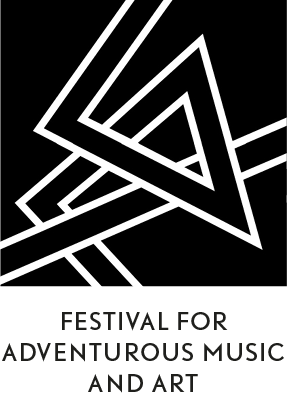Festival Editions
Research Networking Day I
Kunstquartier Studio 1, Mariannenplatz 2, 10997 Berlin → MapTickets: Free entrance
26
SatThe Research Networking Day provides a platform to exchange ideas and experiences for students and researchers from different European graduate and postgraduate programmes traversing the fields of audio, arts, media, design and related theoretical disciplines. A yearly initiative co-organised with the Humboldt University Department of Musicology, the German Association for Music Business and Music Culture Research (GMM), and the “Popular Music and Media” study programme (BA/MA Paderborn University, DE), the RND sought submissions from students, junior researchers and persons pursuing higher levels of research and studies to present projects and findings connected to the CTM 2019 Persistence Theme.
Research Networking Day Welcome and Opening
The first module within the 2019 Research Networking Day is hosted by Dahlia Borsche, who is Head of Music at the DAAD Artist-in-Residence programme. Until October 2018 she was Research Associate at the Department of Musicology at Humboldt University Berlin, focusing on contemporary and transcultural music processes.
Differentiating Future Imaginaries through Eco-Grime
Max Litjens (University of Amsterdam, NL)
With temperatures rising exponentially and ecological tipping points no longer seen as mere predictions for a distant future, both today and tomorrow are set in a state of uncertainty. Imagining other ways of being is increasingly affected by environmental trajectories, which suggests a future that is no longer a humanist project driven by human agency. Instead, we are facing a future in which we must relate differently to natural and technological processes that we have long deemed inferior to human capacities. The ecological crisis we are facing thus urges us to create new ethical relations between human and nonhuman actors.Rethinking humans’ position in these relationships is a cultural endeavor that electronic music producer Herbarium took on in his album, Freshness. By combining distinct visual aesthetics with music that integrates electronic music with natural sounds, the album creates a future imaginary through which it rethinks questions of the relationship between nature and technology. The album is within Rosi Braidotti’s eco-philosophy in order to listen to it as an experiment in finding these new relations without starting from a human center. From this perspective, Freshness exposes how rethinking categories through a future imaginary can contribute to imagining a system of relationships that is better suited to confront the current ecological crisis.
Max Litjens is currently doing a masters in Cultural Analysis at the University of Amsterdam. Electronic music culture and related art practices are starting points to his focus on issues that relate to post-humanism and subjectivity in a digital world. Apart from his studies, he is an editor at arts and culture magazine Simulacrum, for which he organizes lecture programmes, artist interventions, and film screenings.
Forest Scapes
Sophia Bauer (Kunsthochschule für Medien Köln, DE)
How does the past sound? Forest Scapes is a project which researches the impact of colonialism on landscape through sound. I am looking at two concrete forests in Kenya: The Kereita Forest Block that hosts a plantation of Cypresses, an exotic species to Kenya introduced by the British (who were in power from 1895-1964), and the indigenous Arabuko-Sokoke Forest, a biodiversity hotspot on the Kenyan coast, which still shows visible traces of the past, for instance former logging paths. By listening to these two forests, I aim to rethink the relationship between colonialism, people, places, and plants, and to reassemble their hierarchies in history. In this way, Forest Scapes tries to consider different aural materials to compose an ambivalent picture of the past, taking the agency of all the different players and natural factors into account.
Sophia Bauer is a student at the Academy of Media Arts Cologne since 2013. Previously, she was a student of African Languages, Literature and Art at the University of Bayreuth. Forest Scapes is her diploma project. She lives in Cologne.
Hiss
Aladin Borioli (Freie Universität Berlin, CH/DE)
For several years, the project “Apian” has followed an ongoing and open-ended research which explores the age-old interspecies relationship between honeybees and humans. Combining an anthropological approach and artistic practice, it investigates contact zones where humans and honeybees meet. “Apian” consists of multiple fragments that are both autonomous and related to one another. Once reunited, they create a sort of narrative universe which aims to offer places of refuge where beekeepers, scholars, and honeybees can think together.
This talk focuses on a fragment of the “Apian” project, called “Hiss”, which is created in collaboration with artist and musician Laurent Güdel. It is part of an ethnography which investigates the coming of new technology called electronic monitored hives (E.M.H.), and its possibility to enhance this age-old interspecies relationship. “Hiss” focuses on the sense of hearing, interweaving two human voices – that of Moroccan beekeeper Souaf Hassan and Berlin-based neurobiologist Randolf Menzel – with numerous honeybees voices. “Hiss” offers a sonic immersion into a refuge where, in alliance with technology, two different Umwelts collide and merge, allowing an ontological choreography to happen. In short, the presentation will explore this interspecies relationship from the angle of sound using “Hiss” as an example.
After completing a Bachelor in photography at the Ecole Cantonale d’Art de Lausanne (2014), Aladin Borioli is pursuing his own artistic practice, which focuses on the relationship between humans and honeybees. This research leading him into a Masters in Visual and Media Anthropology at the Freie Universität Berlin (2018). His work spans different fields, and has been presented in an artistic context at the Festival Circulation(s) in Paris at the 104 (2015), and in anthropological form during the ASA conference in Oxford (2018), among other. His collaborator, Laurent Güdel, is an artist and musician based in Switzerland.
Dahlia Borsche[DE]
Dahlia Borsche is musicologist and curator. In 2019 she took on the position of Head of Music at the DAAD Artist-In-Berlin programme.

